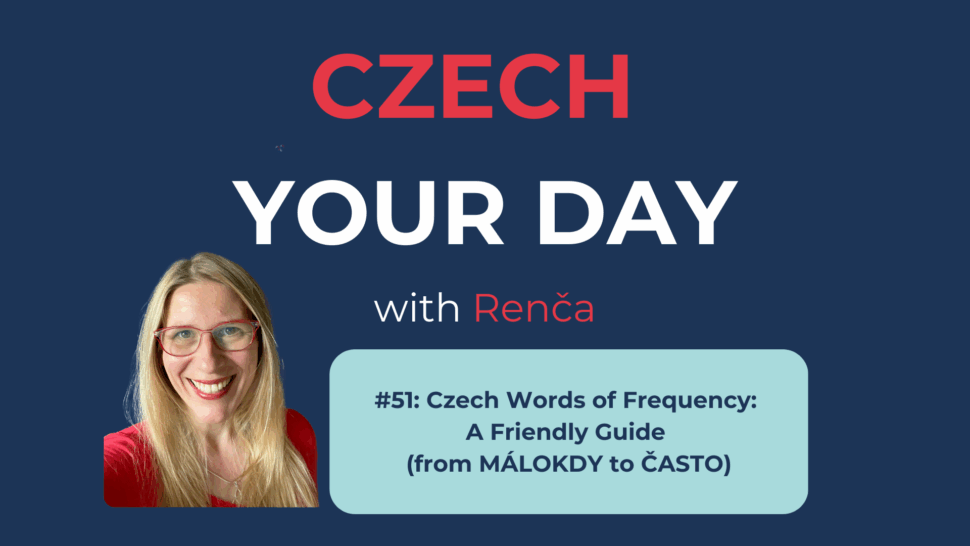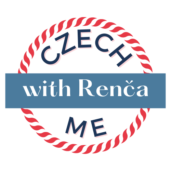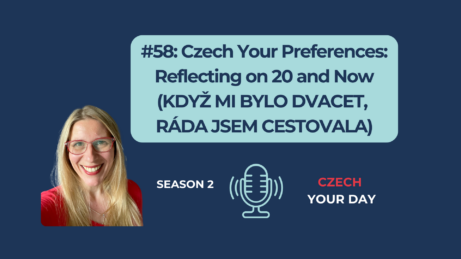Episode 51 (daily podcast CZECH YOUR DAY) transcript included

THIS WEEK’S TOPIC: FREQUENCY + JEZDIT/CHODIT
THE TRANSCRIPT/HANDOUT IS DOWN BELOW
This week, we’re diving into the expressions of frequency and how to express to go in Czech (when talking about a repetitive action).
Key Expressions of Frequency in Czech:
I have put together some expressions you might often encounter in daily Czech conversations.
- Někdy = Sometimes
- Synonym: Občas
- Example: „Někdy vstávám v pět hodin.“ (I sometimes get up at five o’clock.)
- Example: „Někdy cestuje vlakem, jindy zase autobusem.“ (Sometimes he travels by train, another time by bus.)
- Často = Often
- Example: „Často mi volá v poledne.“ (She often calls me at noon.)
- Question: „Jak často to děláš?“ (How often do you do that?)
- Obvykle = Usually
- Example: „Co obvykle děláš o víkendu?“ (What do you usually do at the weekend?)
- Example: „Trvá to obvykle týden.“ (It usually takes a week.)
- Málokdy = Rarely
- Synonym: Zřídka (more formal)
- Example: „Málokdy piju kávu odpoledne.“ (I rarely drink coffee in the afternoon.)
- Example: „Vidí se jen málokdy, protože mají hodně práce.“ (They rarely see each other because they are really busy.)
- Nikdy = Never
- Antonym: Vždy, Vždycky* (informal)
- Important: Remember the double negative in Czech—make sure the verb is in the negative form!
- Example: „Nikdy jsem nejedla šneky.“ (I have never eaten snails.)
- Example: „Nikdy jsem se neučila japonsky.“ (I have never learned Japanese.)
Komentáře








